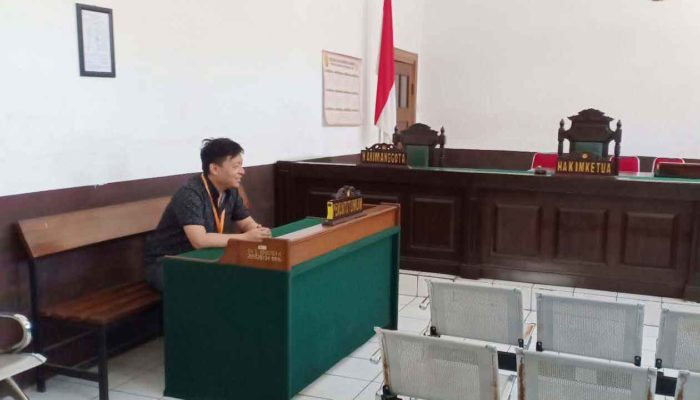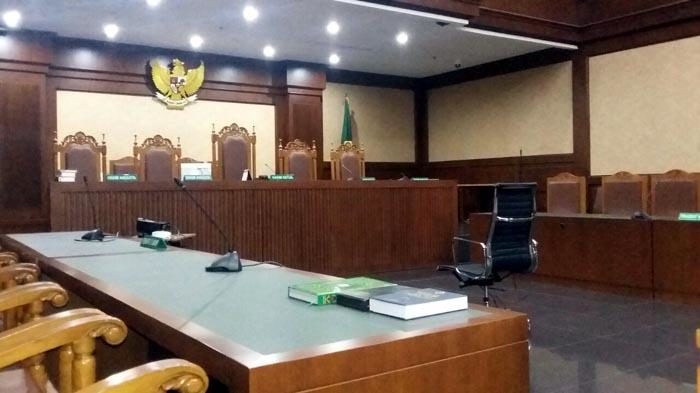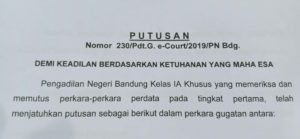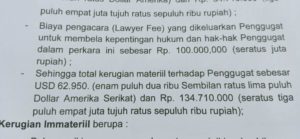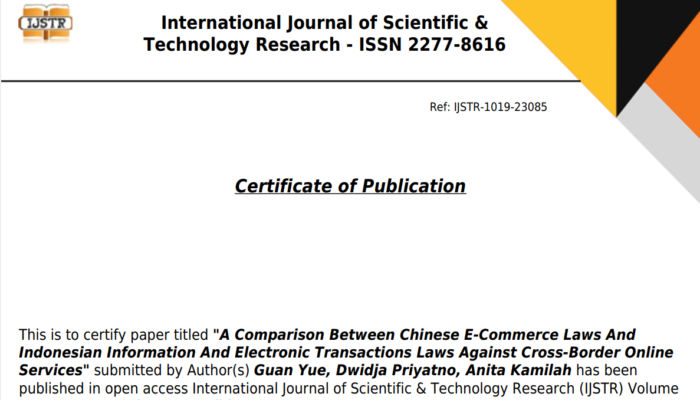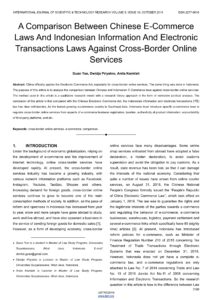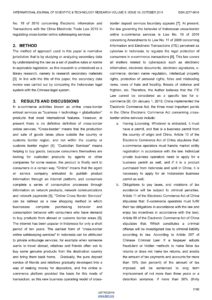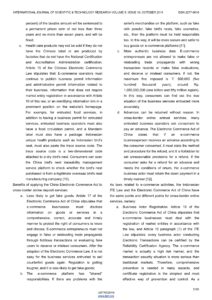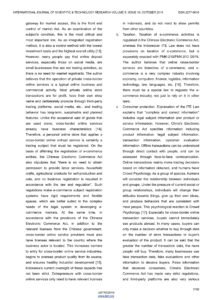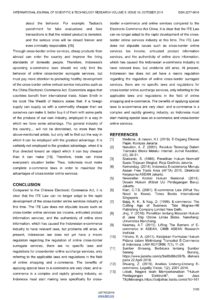In recent years, due to the active economy of Indonesia and the opening of related policies, a large number of foreign companies and individuals have set their sights on Indonesia, the fourth largest Southeast Asian country by population. However, due to insufficient understanding of local laws and regulations, and failure to do homework in advance for local customs, many foreign companies and individuals are caught in legal disputes, and many foreign companies and individuals lack confidence in the Indonesian judicial system. It is still a country full of corruption, and what is more, it still believes that the Indonesian government and the public are biased against foreigners and believes that once caught in the lawsuit, it must be the foreigners who suffer.
The world is constantly developing. There is no one-size-fits-all country in the world. Every government wants to make its own country stronger, its people more prosperous, and its international status more stable, as is Indonesia. As Southeast Asia ’s largest economy, Indonesia has been cracking down on corruption in recent years. In particular, several reforms to the judicial system have greatly improved the efficiency of litigation and reduced the possibility of judges taking bribes. Of course, I am not saying that there is no corruption in the Indonesian judicial system, but that it has been greatly improved compared to the past.
Many foreign reports have advocated that foreign companies and individuals should try to avoid getting caught up in lawsuits when they encounter legal problems in Indonesia. That is because everyone does not know enough about Indonesia’s judicial process. Today, I will mainly talk about the issues that many companies and individuals are more concerned about. What are the steps if a lawsuit is to be filed in Indonesia? How much time does it take?
Regarding helping foreign companies and individuals in lawsuits in Indonesia, especially civil lawsuits, our Queen’s Law Firm can be said to be experienced. Regarding the judicial process in Indonesia, we must first talk about the source of Indonesian law. Indonesia is a Dutch colony and has been colonized by the Netherlands for 100 years, so the legal system is a legacy of the Dutch legal system. And we all know that the Netherlands is the country where several legal thoughts originated in the world. The father of international law, Grotius, is Dutch. Therefore, no matter how many times the law currently used in Indonesia has been modified, the soul of the law still has the shadow of Dutch law. Therefore, the number of courts in Indonesian civil lawsuits is very high, which will surprise many foreign friends.
In Indonesia, whether simple or not, civil cases basically need to be heard about 10 times. Because Indonesian law believes that to ensure the fairness of the parties, it is necessary to ensure a sufficient number of hearings so that both parties have sufficient opportunities to clarify their claims and prove their innocence. If there are no special circumstances, the usual steps are as follows: first, the lawyer submits the indictment in the electronic court system, and then the court will send the subpoena to the other party within two weeks to one month. At the first hearing, the judge and the lawyers on both sides check the power of attorney with each other to ensure the legality of the lawyer. The mediation judge then conducts one or two mediation, and if the mediation fails, it officially enters the hearing stage, that is, the second hearing, and the judge reads the indictment. The third time a response to our indictment was submitted by the opposing lawyer. The fourth time we responded. The 5th time the other party will reply. The sixth time we submitted evidence, the opposing lawyer reviewed the evidence. The 7th time our witnesses attended. The 8th time the other party submitted evidence, our lawyers reviewed it. The 9th counterpart witness attended. For the 10th time, both parties submitted their concluding remarks. For the eleventh time, the judge read the verdict.
Each week or the same day at most one week apart, mediation is not counted, and 11 sessions are held. In other words, civil proceedings in Indonesia will last at least 3 months and up to 6 months.
In addition, Indonesia has a three-trial final system, which means that there are two opportunities to appeal, and each appeal lasts for one to three months. This is done with full consideration of the principle of fairness.
So many people will ask if it will be troublesome to go to court without stopping. In fact, with the exception of the divorce case, other civil lawsuits do not require the parties to be present, just leave it to a lawyer to do it. And now Indonesia is launching an online court trial system, which means that all court proceedings will be conducted directly through the Internet, which will greatly improve efficiency. The system is expected to be operational in 2020.
We have always advocated that when we encounter legal problems, we must solve them through legal channels. Blind retreat and tolerance will only promote the arrogance of the other party. Respect and dignity need to be won by ourselves.

